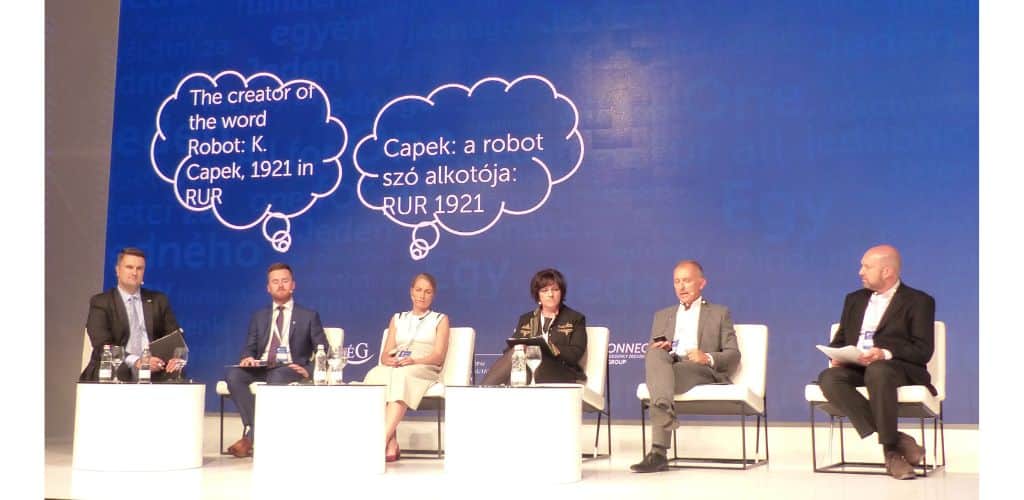European lawmakers have reached an agreement on the world’s first comprehensive law on artificial intelligence (AI).
According to the MIT Technology Review,
The AI Act was conceived as a landmark bill that would mitigate harm in areas where using AI poses the biggest risk to fundamental rights, such as health care, education, border surveillance, and public services, as well as banning uses that pose an “unacceptable risk.”
“High risk” AI systems will have to adhere to strict rules that require risk-mitigation systems, high-quality data sets, better documentation, and human oversight, for example. The vast majority of AI uses, such as recommender systems and spam filters, will get a free pass.
The new EU AI Act requires tech companies to notify users when they’re interacting with a chatbot or other AI tool, rather than with a human being.
The law also requires that deepfakes and other AI-generated content be labeled as such.
Organizations that provide essential services, such as insurance and banking, are required to conduct an impact assessment to determine how the use of AI systems will affect people’s rights.
AI systems will need to share information about the data that their models are trained on. AI companies will also need to reveal how secure and energy efficient their AI models are.
As the International Energy Agency notes,
AI… uses more energy than other forms of computing – a crucial consideration as the world seeks to build a more efficient energy system. Training a single model uses more electricity than 100 US homes consume in an entire year. In 2022, Google reported that machine learning accounted for about 15% of its total energy use over the prior three years.
As Forbes notes, AI also uses a lot of water:
Using public data sources, [researchers] estimate that “training GPT-3 in Microsoft’s state-of-the-art US data centers can directly consume 700,000 liters of clean freshwater”, which they calculate could be used to produce 370 BMW cars or 320 Tesla electric vehicles.
Furthermore, ChatGPT ‘drinks’ the equivalent of a 500ml bottle of water for a simple conversation of 20-50 questions and answers. Which may not seem like much… until you consider that the chatbot has more than 100 million active users, each of whom engages in multiple conversations.
The EU will set up a new European AI Office to coordinate compliance with the new AI Act. According to MIT Technology Review,
It will be the first body globally to enforce binding rules on AI, and the EU hopes this will help it become the world’s go-to tech regulator. The AI Act’s governance mechanism also includes a scientific panel of independent experts to offer guidance on the systemic risks AI poses, and how to classify and test models.
Fines for failing to comply with the new AI Act are steep: from 1.5% to 7% of a firm’s global (not just EU) sales, depending on the severity of the offense and size of the company.
Some uses of AI are totally banned in the EU. These include:
- distorting a person’s behavior to cause, or likely to cause, physical or psychological harm by deploying subliminal techniques or by exploiting vulnerabilities due to the person’s age or physical or mental disability, such as voice-activated toys that encourage dangerous behavior in children;
- “social scoring” by public authorities based on social behavior, socio-economic status, or characteristics leading to detrimental or unfavorable treatment of certain groups of people;
- real-time and remote biometric identification in public spaces for law enforcement purposes, unless necessary for a targeted crime search or prevention of substantial threats.
“Social scoring” is used in China’s Social Credit System, which evaluates people for trustworthiness based on several factors.
“Predictive Policing” (as shown in the Tom Cruise movie Minority Report), which predicts who will commit crimes before they happen, is banned under the new EU law unless used with “clear human assessment and objective facts, which basically do not simply leave the decision of going after a certain individual in a criminal investigation only because an algorithm says so,” according to an EU official quoted by the MIT Technology Review.
Police forces in the EU will only be able to use AI-based biometric identification in public places for 16 specific crimes, including terrorism, human trafficking, sexual exploitation of children, and drug trafficking.
The text of the AI Act is still subject to final minor modifications and must be approved by EU member countries and the EU Parliament before it becomes law. Once it does, tech companies (including US companies that do business in the EU) will have two years to comply with the new rules.
The EU AI Act will certainly be watched closely in other countries, including the US, developing their own AI regulations.
Just like the haiku above, we like to keep our posts short and sweet. Hopefully, you found this bite-sized information helpful. If you would like more information, please do not hesitate to contact us here.


